March 2023
- English
- 日本語
Enhancing Agricultural Productivity and Promoting Sustainable Agriculture
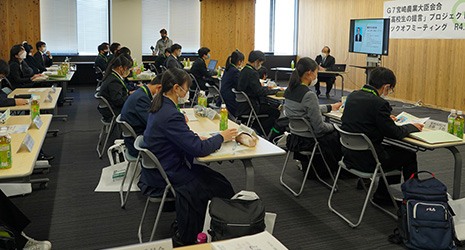
Kickoff meeting of the “High School Student Proposal Project” in Miyazaki City, December 2022 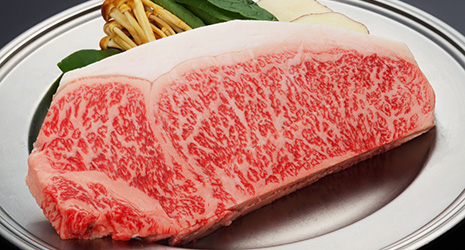
Miyazaki wagyu beef, a specialty product of Miyazaki Prefecture
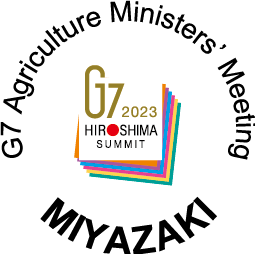
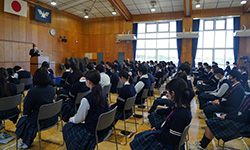
Lecture by a MAFF official at a junior high school in Miyazaki City 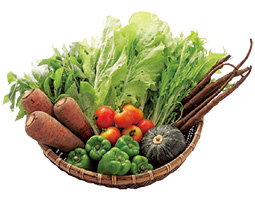
Organic vegetables produced in Aya Town in Miyazaki Prefecture 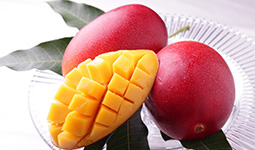
Mango, a specialty product of Miyazaki Prefecture 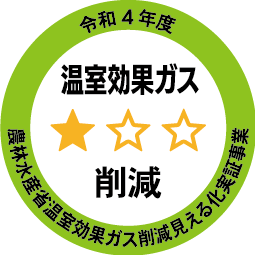
A label showing the greenhouse gas reduction rate, graded by stars

At the G7 Agriculture Ministers’ Meeting to be held this April (2023) in Miyazaki City, Miyazaki Prefecture, it is expected that there will be discussions on how to enhance agricultural productivity and promote sustainable agriculture in ways that are compatible. As ensuring a stable food supply is becoming a common issue across the world, we take a look at Japan’s efforts

Ensuring food security continues to be a global concern, heightened by crises such as the invasion of Ukraine by Russia, and how to enhance agricultural productivity while ensuring sustainability has become a global issue. Agriculture ministers will meet to discuss ways to enhance agricultural productivity and sustainability at the G7 Agriculture Ministers’ Meeting in Miyazaki on April 22 and 23 of this year (2023), which will be held at the Seagaia Convention Center in Miyazaki City, Miyazaki Prefecture.
Strategy for Sustainable Food Systems, MeaDRI
In 2021, the Japanese government launched the Strategy for Sustainable Food Systems, MeaDRI (Measures for Achievement of Decarbonization and Resilience with Innovation), which aims to boost both potential and sustainability in the food, agriculture, forestry, and fishery industries with innovation. The strategy sets 14 goals to be achieved by 2050. Among them are achieving zero CO2 emissions originating from fossil fuels in the agriculture, forestry, and fishery industries, reducing the use of chemical fertilizers by 30%, and raising the proportion of cultivated land for organic farming* from the current level of 0.6% to 25% (one million hectares). Furthermore, a new act** was enforced in July 2022 to promote this strategy.
Aya Town’s Organic Agriculture Efforts

Miyazaki Prefecture, host of the G7 Agriculture Ministers’ Meeting, is promoting efforts to enhance agricultural productivity and sustainability. Aya Town, for example, located in the midwestern part of the prefecture, is a leading town in promoting organic agriculture. The town established a regulation promoting natural ecosystem agriculture in 1988 and, as a “Town of Organic Agriculture,” is promoting new agricultural and rural development for the 21st century, putting into practice organic agriculture without environmental burden, meaning without the use of herbicides, chemical pesticides, or chemical fertilizers, as much as possible. There are many varieties of organic vegetables cultivated in the town, including carrots, green peppers, tomatoes, pumpkins, and more.
Projects for the Agriculture Ministers’ Meeting
Some projects are being undertaken in Miyazaki Prefecture to train human resources taking on future agriculture looking toward the Agriculture Ministers’ Meeting. One of these projects is the “High School Student Proposal Project.” This project was launched to develop human resources who will take on agriculture with a global perspective, on the occasion of the hosting of the Agriculture Ministers’ Meeting. With this project, high school students from Miyazaki Prefecture are discussing sustainable food and agriculture, and on the day of the Agriculture Ministers’ Meeting, they will present their proposals to the attending G7 agriculture ministers.

In February of this year, officials of the Ministry of Agriculture, Forestry and Fisheries (MAFF) of the Japanese government also gave lectures to pupils at elementary and junior high schools in Miyazaki City, providing them the opportunity to learn about international issues. They explained the significance of hosting the Agriculture Ministers’ Meeting in Miyazaki Prefecture, one of the top food-producing regions in Japan, and the need to pass on food systems to the next generations. Some participating students commented that they would stop leaving food behind beginning that night and stop ordering more food than necessary at restaurants.

At the margin of the G7 Agriculture Ministers’ Meeting, several events will be held to promote the charms and attractions of Miyazaki Prefecture. In particular, at the reception and dinner ceremony, participants will be served Miyazaki specialty products such as Miyazaki wagyu beef and mangoes, as well as locally produced vegetables with front-of-package decarbonization labelling that “visualizes” farmers’ decarbonization efforts in line with the MeaDRI strategy (see below).

“Visualization” of Farmers’ Efforts toward Decarbonization

Based on the Strategy for Sustainable Food Systems, MeaDRI, MAFF has developed a tool for the easy estimation of greenhouse gas emissions from agricultural products, so it is possible to “visualize” the efforts of farmers who contribute to reducing greenhouse gas emissions during production. These mitigation measures include reducing the use of fossil fuels, chemical fertilizers and chemical pesticides, and the application of biochar to the agricultural soil. Using this estimation tool, MAFF has conducted a pilot study in which agricultural products (rice, tomatoes, and cucumbers) with front-of-package decarbonization labelling have been sold to raise consumer awareness of the label. The label used in the trial was designed with star marks to indicate grades of the reduction of greenhouse gas emissions.
MAFF is planning to expand the coverage of items and to add biodiversity conservation information to the “visualization.” In such ways MAFF will seek to change the behavior of those involved in the food system.
* In the Act on the Promotion of Organic Agriculture, organic agriculture is defined as farming methods which reduce the load on the environment derived from agricultural production as much as possible, and which basically does not use chemically synthesized fertilizers and pesticides nor genetic recombination technologies.
** Law Concerning Promotion of Low Environment Impact Business Activities to Establish a Food System in Harmony with the Environment
Note: This article has been created with the consent of the Ministry of Agriculture, Forestry and Fisheries (MAFF) and the Miyazaki Prefectural Government, based on the materials published by them.

